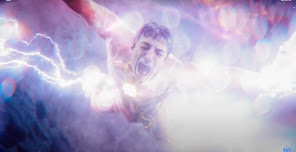'Ghost Rider' Creator Owes Marvel $17 Grand
Late last year Federal District Judge Katherine B. Forrest ruled against writer Gary Friedrich, who created the Ghost Rider character back in 1972 and had sued Marvel Entertainment/Disney in an effort to get a share of revenues from movies and merchandise based on his creation (see “Marvel Owns Ghost Rider”). As part of its legal defense Marvel had filed a counter claim seeking revenue that Friedrich had earned from selling Ghost Rider prints and merchandise at conventions, and that claim as well went in Marvel’s favor.
So the current situation, which is described at length on the 20th Century Danny Boy site, is that Marvel is demanding payment of $17,000 from the penniless creator, who must also agree not just to stop selling any Ghost Rider products of his own creation, but also to refrain from any action promoting himself as the creator of Ghost Rider for financial gain (though he is “permitted” to sign Ghost Rider items, as long as those items are licensed Marvel or Hasbro Ghost Rider merchandise).
With a new Ghost Rider movie opening on February 17th, the specter of a giant media conglomerate hounding a penniless creator for its pound of undeserved (depending on how tolerant one is of the exploitation of freelancers under the rubric of “work for hire”) flesh is something of a marketing nightmare for the film, especially if this story escapes from the hermetic world of comics industry news and makes it to the mainstream media.
Why is Marvel/Disney willing to take the flack from such judicial overkill? Blame the lawyers, who are fearful of showing any weakness on copyright issues, especially with the growing number of lawsuits from comic creators (and their descendants, see “Marvel Gets Kirby Blowback”) seeking a share of all that Hollywood gold now that comic book-inspired movies are as common as fire ants in Texas.
There is also another troubling aspect to this decision, at least for freelance artists, many of whom have earned extra money for years by doing sketches or prints based on their previous comic work for the big publishers—creating drawings and other items that feature copyrighted characters. Does this mean that they too will face legal action? Perhaps not immediately, but should they sue their former employers for a share of the revenues generated by their creations, all bets are quite obviously off.
Source: http://www.icv2.com/articles/news/22111.html



Comments
Post a Comment
Thanks for visiting Dennis Sweatt Comic Book Art! Find us on Twitter @sweattshop.